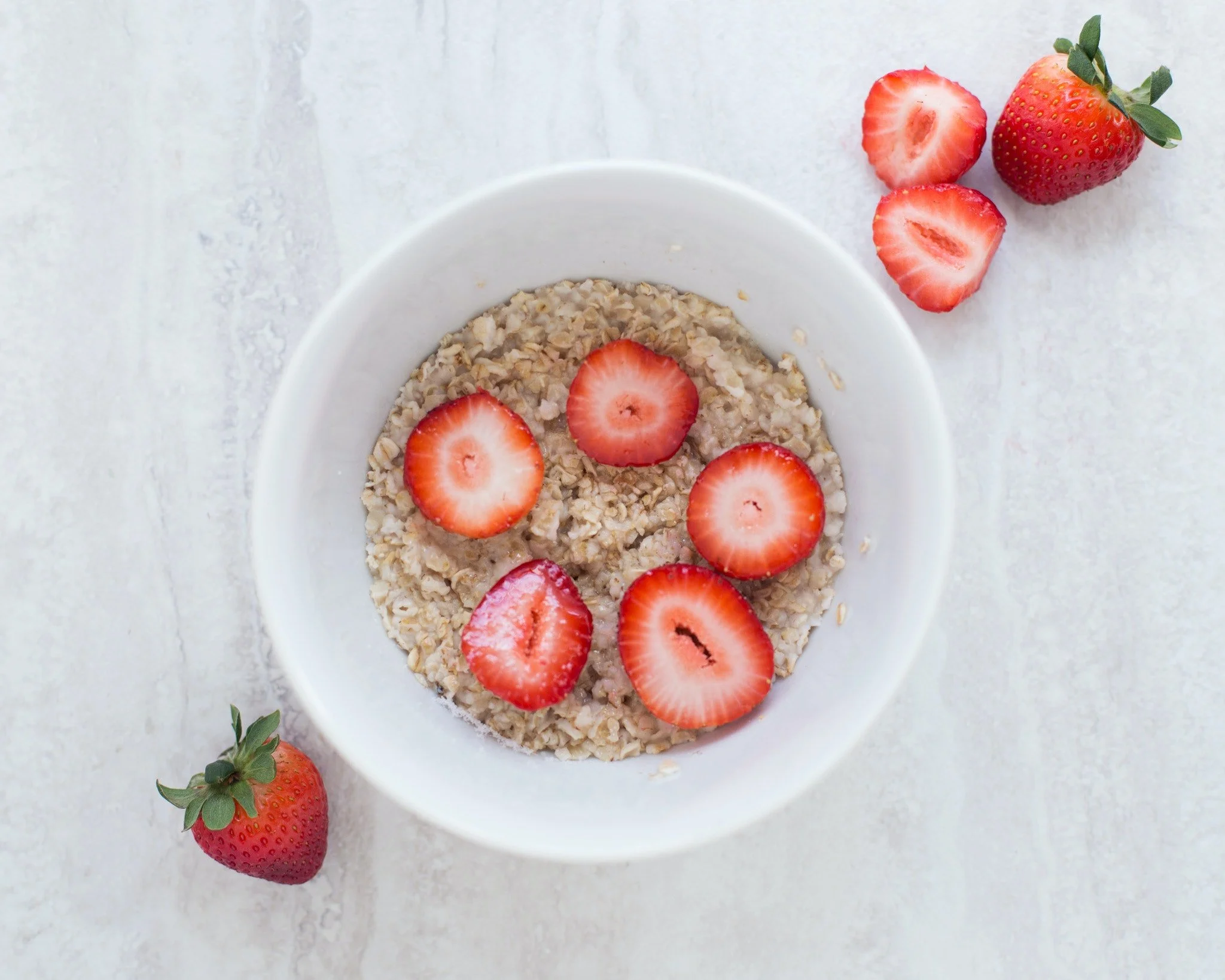Nutrition in pregnancy: 5 reasons why what you eat is crucial for your baby and you.
Pregnancy is an exciting time of your life - but did you know it’s also a critical window of opportunity that requires careful attention to your nutrition?
Your unborn baby relies completely on your nutrient intake to grow and develop, which makes what you eat during pregnancy so crucial.
Here are 5 ways nutrition during pregnancy benefits you and your baby:
1. What you eat directly supports your baby’s growth and development
Research has shown that a mother’s diet leading up to and during pregnancy can influence not only the health of her baby as a new-born, but also as a toddler, child and even in adulthood - incredible, right?!
Eating well during pregnancy ensures that your growing baby receives all the necessary nutrients for proper growth and development.
As well as having an overall healthy diet, there are certain nutrients which are crucial during this time.
For example, folic acid/folate, iron, calcium, vitamin C and protein, supports the growth of the baby's organs, bones, and tissues. Zinc and magnesium have numerous benefits for the baby and mother during pregnancy, such as helping reduce risk of pre-eclampsia and pre-term birth.
2. Nutrition can reduce the risk of birth defects
Proper nutrition during pregnancy can help reduce the risk of birth defects.
Folate or folic acid (the synthetic form of folate) is part of the B vitamin group and a key nutrient for the development of the baby’s neural tube, which forms their spinal cord and brain and spinal.
Taking folate or folic acid not only during pregnancy but also before you conceive has been shown to significantly reduce the risk of neural tube defects, such as spina bifida.
As a side note, keep in mind that folic acid is not as easy to metabolise as the natural form folate, so it is not as well absorbed by the body.
Vitamin D is crucial for proper bone development in babies and zinc deficiency during pregnancy can increase risk of congenital malformations, low birth weight and delayed immune system development.
3. Improves your own health during pregnancy and beyond
A woman's body undergoes many changes during pregnancy, and it’s pretty amazing that we can grow a human being within us.
Some of the changes happening include increased blood volume, hormonal changes (hello mood swings and tearing up at random commercials!), and changes to your immune system (namely, your immune system is under increased load so you are more likely to come down with a cold or virus).
Optimal nutrition helps to support your own health during pregnancy.
This includes reducing the risk of complications such as preeclampsia, gestational diabetes, and anaemia, as well as improving your immune function.
4. Supports healthy weight gain during pregnancy
Gaining weight during pregnancy is absolutely normal and necessary for the baby's growth and development.
However excessive weight gain can actually increase the risk of complications such as high blood pressure in mum-to-be, risk of preterm birth and gestational diabetes. Eating well during pregnancy can support healthy weight gain and help prevent these complications.
Even though we hear that we should be ‘eating for two’ that is simply not the case - for example, during the first trimester of pregnancy, you actually don’t need to eat any additional calories.
And though you do need additional energy in the second and third trimesters, it’s probably less than you imagine. One or two extra snacks a day should get you there.
Note: it’s always best to focus on increasing the nutrients in your diet, rather than calories and how much you should be eating. Choose nutrient dense foods over processed or sugary foods and your body and baby will thrive!
5. Better long-term health outcomes for your baby
Adequate nutrition during pregnancy can have long-term health benefits for both the mother and baby.
Studies have found that what a woman eats during pregnancy (and leading up to conception) can reduce the risk of chronic diseases such as obesity, type 2 diabetes, and heart disease for your baby later in life.
A bowl of oats with strawberries is a nourishing breakfast option during pregnancy.
So you can see that nutrition during pregnancy plays a huge role for the health of both you and your baby.
Getting plenty of essential nutrients supports your baby’s growth and development, decreases the risk of birth defects, supports your own health and improves long-term health outcomes for your child.
Prioritising nutrition during your pregnancy means supporting the health of your growing baby and sets the foundation for a healthy future.
If you are pregnant or trying to conceive and looking for guidance on the best diet for you, I’d love to help support you. I offer a free 10-minute call where we can chat about your health concerns and whether personalised diet and lifestyle support could help you and your baby.
References
Agedew, E., Tsegaye, B., Bante, A., Zerihun, E., Aklilu, A., Girma, M., Kerebih, H., Wale, M. Z., & Yirsaw, M. T. (2022). Zinc deficiency and associated factors among pregnant women's attending antenatal clinics in public health facilities of Konso Zone, Southern Ethiopia. PloS one, 17(7), e0270971. https://doi.org/10.1371/journal.pone.0270971
Borge TC, Aase H, Brantsæter AL, et alThe importance of maternal diet quality during pregnancy on cognitive and behavioural outcomes in children: a systematic review and meta-analysisBMJ Open 2017;7:e016777. doi: 10.1136/bmjopen-2017-016777
Yuan, J., Yu, Y., Zhu, T., Lin, X., Jing, X., & Zhang, J. (2022). Oral Magnesium Supplementation for the Prevention of Preeclampsia: a Meta-analysis or Randomized Controlled Trials. Biological trace element research, 200(8), 3572–3581. https://doi.org/10.1007/s12011-021-02976-9


